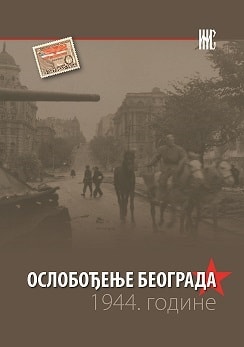Искуство сучељавања: Црвеноармејци и становништво Србије
The Experience of Confrontation: Red Army Soldiers and the Population of Serbia
Author(s): Aleksej J. Timofejev
Subject(s): Civil Society, Military history, Social history, International relations/trade, WW II and following years (1940 - 1949)
Published by: Institut za noviju istoriju Srbije
Keywords: Red Army; imaginology; Serbian-Russian relations; social history; history of everyday life;
Summary/Abstract: The mutual perception of the Red Army soldiers and Serbian population in fall 1944 had far-reaching consequences. The people who came to the Balkans in the ranks of the Red Army in fall 1944 differed from the „pre-revolutionary Russians”. The slump in living standards of peasants and workers supplied in fact the Soviet state with the necessary means for developing the heavy industry and armaments production. During 1930s Russia was transformed from a semiagricultural country into a industrial giant able to produce more quality armament than the leading industrial powers of Europe. For many Red Army soldiers coming to the Balkans was the first opportunity to compare the life in capitalism with the achievements of the Communist system. Soldiers and officers represented relatively young population. Youth coupled with large wartime experience increased the self-assuredness and even self-assertiveness of the soldiers, and particularly of officers. Apart from their comparative youth, officers and soldiers of the Red Army shared common problems: fatigue, poor nourishment, problems with regular clothes and shoes. Trophies helped with solving these problems. It was not all about belts, sausages and typewriters. In the corps of general Zhdanov 65% of the means of non-combat transport were commandeered enemy cars. There were individual problems with immoral behaviour and pilfering, although their number was minimal compared to the general mass of the soldiers. Alcohol was the general problem. The Red Army soldiers knew next to nothing about Yugoslavia before coming to the Balkans. The sole exception was the propaganda message about the partisan movement and Tito transmitted in a few articles before crossing the Serbian border on the Danube. After a while a informal closeness developed between the Red Army soldiers and the partisans, which sometimes turned into collective drinking bouts. All Soviet participants in the combats in Yugoslavia remembered the forthcoming attitude on the part of the population. Perception of the Red Army soldiers by Yugoslav (Serbian) civilians and soldiers had another predispositions and was considerably different. From the materials at our disposal, a general conclusion can be drawn that Yugoslavs, and Serbs in the first place, felt a bit disappointed in USSSR and even in Russians after the Red Army had passed through their territory. Criminal or antisocial behaviour of some Red Army soldiers had to leave a bitter taste, even amidst great joy because of liberation from the German occupation. Partisan repression also contributed to that. However, it would be wrong to claim that the final Yugoslav, and above all Serbian, perception of the Soviet soldiers was just negative. The longawaited liberation and the meeting with the „Russians” couldn’t be completely marred by excesses of individuals and haughty and cautious behaviour of the Soviet officers. The material aid and military assistance lent by the Soviet state to the People’s Liberation Army in the last phase of the war also contributed to the creation of a more positive image of USSR, although occasional confusions and misunderstandings occurred here too. Joy to „see the back” of the Germans, mixed with positive feelings for the Russians and lack of knowledge about the character of the Communist regime, led to touching scenes.
Book: Ослобођење Београда 1944.
- Page Range: 210-236
- Page Count: 27
- Publication Year: 2010
- Language: Serbian
- Content File-PDF

